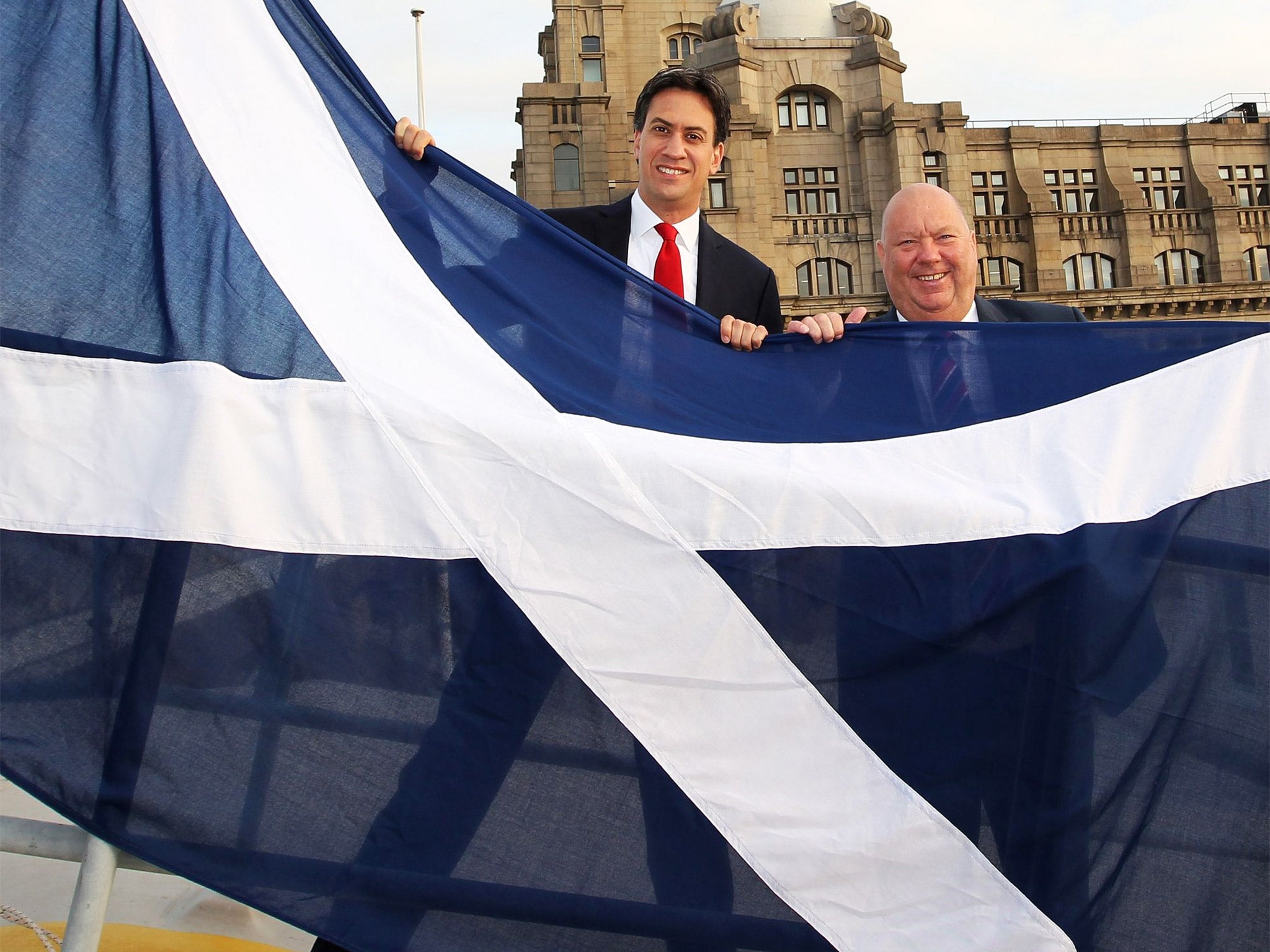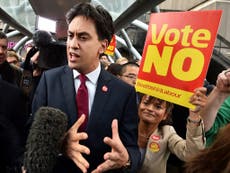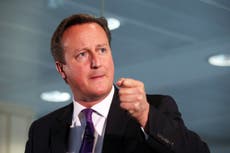Scottish referendum: How did Labour manage to end up on the losing side?
The English genie is out of the bottle and Labour can’t put it back


The political establishment was so uncertain about the outcome of the Scottish referendum that, amid panic at Westminster, Labour drew up two slogans for its annual conference starting tomorrow. “Labour’s Plan for Britain’s Future”, the original choice, will now be used after the No vote.
The alternative option was there in case the Scots voted Yes to independence. It has now been binned and Labour is coy about what it was. We can rule out Ed Miliband’s “one nation” brand. Two nations, perhaps?
There was no time for Labour to enjoy any relief at avoiding the catastrophic loss of its solid block of 41 of the 59 Scottish MPs, who would have been evicted from the Commons on “independence day” in 2016. Wise Labour owls knew that a No vote could pose problems for their party. David Cameron proved them right just after 7am, when he declared that giving more powers to the Scottish Parliament must be accompanied by a “decisive answer” to the question of “English votes for English laws.”
In 2010, the Conservatives won 297 seats in England to Labour’s 191. So Mr Cameron’s move raises the chilling prospect for Labour of winning a general election on the back of its Scottish votes but being unable to get key measures approved by the Commons. In short, a Labour government that would be in office but not in power.
As usual in politics, the “T-word” – tax – is very important. Labour, the Tories and the Liberal Democrats promised further tax-raising powers to the Scottish Parliament. True, Labour stopped short of giving it complete control over income tax, as the Tories did. Ed Balls, the shadow Chancellor, baulked at that when the poll putting the Yes camp ahead induced panic in the Better Together campaign and piled pressure on Labour to sign up to the Tory plan. We can now see why he did. Labour fears that, under “English votes for English laws”, a Labour chancellor might not even get his Budget approved by Parliament. The Tories, in contrast, have little to lose – one vote, to be precise, from the one seat they hold in Scotland. So under the reform envisaged by Mr Cameron, what chance would a Labour chancellor have of securing a Commons majority for Mr Balls’ mansion tax and a 50p top rate of tax? The implications are huge.
The English genie is out of the bottle and Labour can’t put it back. “The English question is a big question and we do not have an answer,” one Labour MP told me. “We can’t carry on saying the answer is to devolve the skills training budget to Manchester.”
Of course, Labour could “win” England. Tony Blair would still have won his three general elections without Scotland, including two with a majority of 100-plus. But since then the Tory-Labour duopoly has been diluted, partly by the rise of Ukip. Ed Miliband’s left-of-centre pitch is not exactly designed to hoover up votes in Middle England. Before and after the Blair era, Labour has suffered from “southern discomfort”. That illness has suddenly got a lot worse. The Labour leadership believes Mr Cameron is playing party politics. They might well be right. But such whingeing would probably cut little ice in England, and might play into the hands of the Tories and Ukip. If Labour gets this wrong it could be punished at next May’s general election, giving the Tories the chance to push through their answer to the “English question”, and thus disable any future Labour administration.
Some Labour figures now regret that Mr Miliband signed up so strongly to his joint “vow” on further Scottish devolution with Mr Cameron and Nick Clegg in Scotland’s Daily Record last Tuesday. “We were panicked by one poll; we didn’t need a kitchen-sink strategy. That front page was about owning the news agenda for a morning,” said another Labour MP. “It’s now coming back to haunt us, and it could screw us.”
Some lessons from the referendum are not bad for Labour. One reading of the campaign is as a rejection of the status quo, a cry for change. That will be seized on by Mr Miliband, who will argue that tinkering with the Commons voting system will not answer the public’s call. He will try to turn the debate on to his radical plans to reform an economic system that has lasted since the Thatcher era but no longer provides “an economy that works for working people”.
The other parties cannot afford to gloat at Labour’s immediate headache. Scotland has sent a powerful message to all of them.
As Labour’s Douglas Alexander, a leading player in the No team, told me yesterday: “The overwhelming emotion was distrust and hatred of politicians. The referendum, in truth, was about politics and politicians almost as much as about Scotland and the Scottish people. It is a wake-up call for politics in general.”
Mr Alexander has got the message. Other politicians must too. Some will be tempted to think they can return to business as usual after saving the Union. That would be foolish, and merely widen the gulf between people and politicians exposed in Scotland.
The history books may reflect on the irony that Labour, after eventually mobilising its Scottish vote, was on the winning side in the referendum and yet somehow emerged as the biggest loser.




Join our commenting forum
Join thought-provoking conversations, follow other Independent readers and see their replies